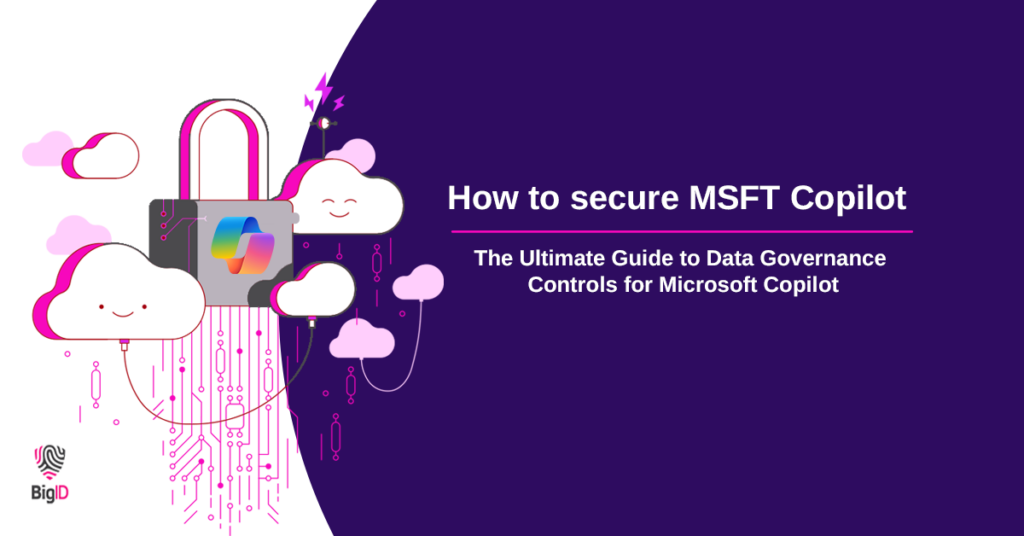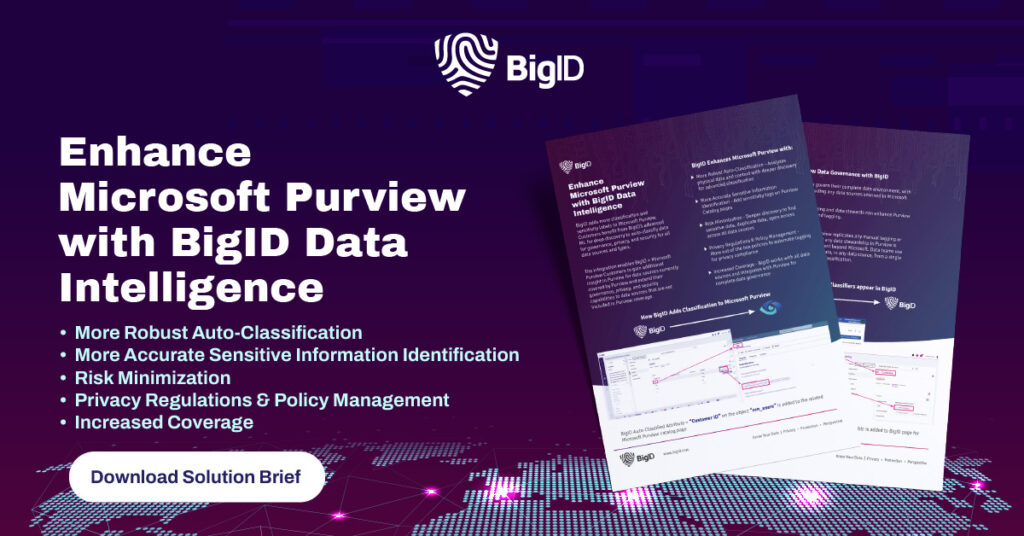Microsoft Copilot is a powerful AI-powered code completion tool designed to enhance productivity by providing intelligent code suggestions and automating repetitive coding tasks. It assists developers by analyzing code context, understanding programming patterns, and offering relevant code snippets in real-time, thereby accelerating the software development process.
While Microsoft Copilot offers significant benefits in terms of productivity and efficiency, its use can also introduce insider risk within organizations. Insider risk refers to the potential for employees or authorized users to intentionally or unintentionally misuse their access privileges, leading to security breaches, data leaks, or other malicious activities.
One way Microsoft Copilot can contribute to insider risk is by inadvertently suggesting code snippets that contain security vulnerabilities or sensitive information. For example, if developers unknowingly incorporate insecure coding practices or expose confidential data within their codebase, it can increase the organization’s susceptibility to insider threats.
The Potential Risk of Integrations
Microsoft Copilot can be used with various integrated development environments (IDEs), code editors, and other software development tools. Common integrations include:
- Visual Studio Code (VS Code)
- GitHub
- Azure DevOps
- Visual Studio
- GitLab
- Bitbucket
- Sublime Text
- Atom
- IntelliJ IDEA
- PyCharm
While leveraging Microsoft Copilot with these tools can enhance productivity, there are potential risks and threats involved:
- Data Leakage: Copilot may inadvertently suggest code snippets containing sensitive information or proprietary code when integrated with version control systems like GitHub, GitLab, or Bitbucket.
- Security Vulnerabilities: There’s a risk that Copilot-generated code snippets may contain security vulnerabilities if not thoroughly reviewed, especially when integrated with IDEs like Visual Studio Code or JetBrains IntelliJ IDEA.
- Intellectual Property Concerns: Copilot could inadvertently include proprietary algorithms, business logic, or trade secrets in generated code when used with version control systems or IDEs, potentially exposing intellectual property.
- Compliance Issues: Integration with version control systems and development platforms may raise compliance concerns regarding data privacy, intellectual property rights, and regulatory requirements if Copilot suggests code that violates industry standards or regulations.

Common Security Threats Faced by Microsoft Copilot Users
Microsoft Copilot, being an AI-powered code completion tool, can introduce certain security risks and vulnerabilities to its users. Some known threats users may face in Microsoft Copilot include:
- Code Injection: Copilot may inadvertently generate code snippets containing vulnerabilities such as SQL injection, cross-site scripting (XSS), or other forms of injection attacks if not properly sanitized.
- Intellectual Property Leakage: Copilot’s suggestions may inadvertently include proprietary or sensitive information from the user’s codebase, potentially leading to intellectual property leakage or code disclosure.
- Malicious Code Generation: Copilot’s AI models may suggest code snippets that contain malicious logic or backdoors, either due to unintentional training biases or deliberate manipulation by threat actors.
- Privacy Concerns: Copilot operates by analyzing and learning from large datasets of code, raising privacy concerns regarding the exposure of sensitive or confidential code to third-party servers.
- Dependency Risks: Copilot’s code suggestions may rely on third-party libraries or dependencies without considering their security implications, potentially introducing vulnerabilities or compliance issues into the codebase.
- Algorithmic Biases: Copilot’s AI models may exhibit biases in generating code suggestions, which could inadvertently perpetuate security vulnerabilities or discriminatory practices present in the training data.
- Compliance Challenges: Copilot’s use may raise compliance challenges related to data protection regulations, intellectual property rights, and licensing agreements, particularly in regulated industries or organizations handling sensitive data.
- Limited Context Awareness: Copilot’s AI may lack context awareness regarding specific security requirements or constraints within a given codebase, leading to the generation of insecure code snippets that fail to adhere to best practices or security policies.
- Social Engineering Attacks: Copilot’s suggestions may inadvertently assist attackers in crafting convincing phishing emails, social engineering messages, or other malicious communications by providing relevant code snippets or content.
- Insider Threats: Users with access to Copilot may intentionally or unintentionally misuse its capabilities to introduce vulnerabilities, bypass security controls, or compromise sensitive information within their organization’s codebase.
Best Practices for Mitigating MS Copilot Risk
When considering potential security threats posed by Copilot, it’s essential to understand how it interacts with these development environments and the code repositories they access.
- Code Review: Developers should carefully review and validate code suggestions provided by Copilot to ensure they adhere to security best practices and do not introduce vulnerabilities.
- Data Sanitization: Implement strict data sanitization techniques to filter out potentially insecure or sensitive information from code snippets generated by Copilot before integration into production environments.
- Access Controls: Limit access to Copilot and other development tools to authorized personnel only, reducing the risk of unauthorized use and potential security breaches.
- Privacy Considerations: Review and understand the privacy implications of using Copilot, including how it handles and processes code data, and ensure compliance with relevant privacy regulations.
While it’s not possible to completely eliminate all security threats associated with Copilot, following these best practices can help mitigate risks and ensure the security and integrity of the codebase. Additionally, staying informed about security updates and patches released by Microsoft can further enhance security posture and protect against emerging threats.
A Real-world Perspective: MS Copilot Security Vulnerability
Company A: Fintech Startup
Company A relies heavily on Microsoft Copilot to accelerate their software development process. They use Copilot to generate code snippets, automate repetitive tasks, and enhance the overall efficiency of their development team. However, during a routine code review, the development team discovers that Copilot has generated code snippets that inadvertently access and manipulate sensitive financial data without proper encryption or access controls. This discovery raises compliance concerns as the company is subject to strict regulations, such as GDPR and PCI DSS, governing the protection of financial data.
Company B: Healthcare Organization
Meanwhile, Company B utilizes Microsoft Copilot to streamline their software development efforts for managing EHR systems. Copilot’s AI-driven code suggestions have proven to be invaluable in speeding up the development lifecycle. However, during an internal audit, the compliance team identifies instances where Copilot has recommended code snippets that handle patient health information (PHI) in a manner that doesn’t fully adhere to the Health Insurance Portability and Accountability Act (HIPAA) regulations. Specifically, the generated code lacks proper encryption, audit trails, and access controls, posing a significant risk to patient privacy and violating HIPAA compliance requirements.
Why Proactive Data Security Management is Essential
In both scenarios, the use of Microsoft Copilot has inadvertently introduced compliance concerns related to data security and privacy. To address these issues and mitigate the associated risks, proactive data management practices are essential:
In both scenarios, the use of Microsoft Copilot has inadvertently introduced compliance concerns related to data security and privacy. To address these issues and mitigate the associated risks, proactive data management practices are essential:
- Data Governance: Implement robust data governance frameworks to define policies, procedures, and responsibilities for managing and protecting sensitive data effectively. This includes classifying data based on its sensitivity, defining access controls, and enforcing encryption mechanisms to safeguard data at rest and in transit.
- Compliance Monitoring: Continuously monitor and audit the usage of Microsoft Copilot and other development tools to ensure compliance with relevant regulations and industry standards. This involves conducting regular code reviews, performing security assessments, and leveraging automated tools for identifying and remediating compliance violations proactively.
- Secure Development Lifecycle: Incorporate security into every stage of the software development lifecycle (SDLC) to address potential compliance risks early on. This includes integrating security testing tools, conducting security training for developers, and implementing secure coding practices to prevent vulnerabilities from being introduced into the codebase.
- Vendor Risk Management: Evaluate the security and compliance posture of third-party tools and services, such as Microsoft Copilot, before integrating them into the development environment. Ensure that vendors adhere to industry best practices, undergo regular security assessments, and provide transparent documentation regarding data handling and privacy practices.
- Incident Response Planning: Develop comprehensive incident response plans to address security incidents or data breaches promptly. Establish clear escalation procedures, define roles and responsibilities, and conduct regular tabletop exercises to test the effectiveness of the response plan in mitigating compliance-related incidents.
Adopting a proactive approach to data management and incorporating robust security measures into their development processes, both Company A and Company B can effectively address compliance concerns arising from the use of Microsoft Copilot while safeguarding the security and privacy of sensitive data.

Securing Sensitive Data with Proper Controls
Microsoft Copilot incorporates several built-in security controls to help mitigate potential risks:
- Code Sanitization: Copilot attempts to generate safe and secure code snippets by analyzing context and adhering to coding best practices.
- User Authentication: Access to Copilot is typically tied to user accounts, requiring authentication to prevent unauthorized use.
- Data Encryption: Microsoft likely employs encryption protocols to protect data transmitted between the user’s environment and the Copilot servers, ensuring confidentiality.
However, despite these controls, there are potential gaps that could expose users to security risks:
- Vulnerability Detection: Copilot may not always catch all vulnerabilities or insecure coding practices, leaving room for potential security flaws in the generated code.
- Data Privacy: Concerns persist around the privacy of code snippets sent to Microsoft’s servers for processing. Users may be wary of sensitive code being transmitted and stored on external servers.
- Compliance Assurance: Copilot’s built-in controls may not address specific compliance requirements mandated by industry regulations, leaving users responsible for ensuring compliance within their own environments.
A data security platform can help bridge these gaps by providing additional layers of protection and compliance support:
- Code Analysis and Vulnerability Scanning: A data security platform can integrate with Copilot to analyze generated code snippets for vulnerabilities and insecure coding practices, providing real-time feedback to developers.
- Data Encryption and Tokenization: Implementing end-to-end encryption and tokenization techniques within the data security platform can ensure that sensitive code snippets are protected both in transit and at rest, enhancing data privacy.
- Compliance Management: The data security platform can offer features to help users maintain compliance with relevant regulations by providing automated compliance checks, policy enforcement, and audit trail capabilities tailored to specific requirements.
- Access Controls and Monitoring: Enhanced access controls and monitoring functionalities within the data security platform can help track and manage user access to Copilot, detect unauthorized usage, and monitor activity for suspicious behavior.
Leveraging BigID to Secure Your Data in Microsoft Copilot
No matter what size organization, BigID offers unparalleled capabilities that empower teams to seamlessly integrate Microsoft Copilot into their operations— without the additional resources or overhead. With BigID, organizations can effortlessly classify, tag, flag, and label data within their Microsoft 365 (M365) environment, covering platforms like OneDrive, SharePoint, Outlook Online, and Teams. Automated policies can flag potentially unsafe data, enabling prompt remediation like deletion, data relocation, or marking for further investigation – all within one comprehensive platform.
With BigID you get:
- Enhanced Data Visibility: BigID automatically inventories the data estate, uncovering dark data and offering insights into data assets across Office 365 and beyond, facilitating informed decision-making.
- Proactive Risk Mitigation: Identify and address security vulnerabilities proactively, enhancing the data security posture, and streamlining incident response processes.
- Compliance Acceleration: Ensure compliance with regulatory requirements through automated data policies, robust data governance controls, and streamlined remediation and retention workflows.
- Streamlined Operations: Automate repetitive tasks related to data classification, access control, and data minimization, freeing up resources for strategic initiatives and improving operational efficiency.
Start securing Microsoft Copilot with BigID— get a 1:1 demo with our experts today.


